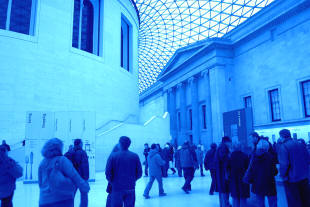The Index of English Tenses

Here's the overview
(NB: Many sources and coursebooks use 'continuous' instead of 'progressive'. On this site, the difference between the two terms is maintained. This chart is quite basic. Reality, as is often the case, is more complicated.)
Click on an area of the chart to go to guides to each area.

The chart and the following table is available as a PDF document.
Look through the chart and try to make your own examples of each of the tense forms and then click for a quick matching test to see if you can remember the names.
What follows is not exhaustive but it covers the main uses of these tenses in English.
| Tense | Main uses | Examples |
| Present simple | Repeated or habitual actions | I play tennis every Thursday |
| Generalisations | Flamingos eat fish | |
| Schedules | The train arrives at 8 | |
| Present conditions (with some verbs only) representing continuous states | I am here He needs money |
|
| Present progressive | Current actions | He is writing a letter |
| Current (background) actions which may not be occurring now | He is writing a book He is studying French |
|
| Currently arranged future | I'm seeing the doctor tomorrow | |
| Past simple | Finished past action or condition | I ate at six I lived in Brazil I was happy |
| Repeated or habitual past action | I always ate at six | |
| Past progressive | Interrupted past action | I was eating when he rang |
| Progressive action at a particular time | I was eating at 7 | |
| Discontinued habit | I was walking to work in those days | |
| Parallel past actions or events | It was raining and the wind was blowing I was eating while she was watching television |
|
| Present perfect | Present effect of a past event, at an unspecified time | I have spoken to him (so now he
knows) I have learnt French (so now I can speak it) He has broken the pump (so now we can't use it) |
| To describe experiences relevant to the present | I have been to America (so I can speak about it) | |
| Present perfect progressive | To emphasise duration of a long event or action and its current effect | I've been waiting for hours (and am really cold) |
| Events which have continued until now and are still current (this is actually continuous, not progressive) | She's been looking unwell for some time (and still is) | |
| The present outcomes of progressive events | He's been working too hard (so is now exhausted) | |
| Past perfect | Completed actions before others in the past | I had already spoken to her before he asked |
| Completed long events before actions in the past | It had rained for a week before the weather broke | |
| Past perfect progressive | (Un)completed long actions before events in the past | I had been playing chess for two hours before he arrived |
| To show a causal relationship between events in the past | He had been working too hard and was exhausted | |
| Future simple or will future | A present promise or
offer The verb will represents willingness, not necessarily futurity |
I'll write soon, I'll do the washing
up There's no butter! I'll go and get some. |
| Predictions based on experience or hunches | This will be difficult | |
| Certain absolute futures | I will be 45 on Monday | |
| Future progressive | Potentially interrupted action | He'll be working when you come |
| Progressive future event at a specific time | I'll be working at 7 | |
| Future perfect | Completed action before another | He'll have finished the book by the time I want it |
| To show causal connections | He'll have repaired the car and then we can use it | |
| Events occurring before future actions (certain verbs only) | I'll have been at the hotel for a day or two before I can call you | |
| Future perfect progressive | Future progressive actions or events before other actions | I will have been working for over two hours before you get here |
| To show causal connections | He'll have been travelling for ten hours and will be tired | |
| going to | To express current intention | I'm not going to put up with it |
| To express prediction based on current evidence or experience | Look at those clouds. It's going to rain any minute | |
| used to | Past habits (generally only for actions) | I used to drink lots of coffee I used to take my holidays in Spain |
Of course there's a test. Try to do it without referring to the chart and table.
| Related guides (you can also click on the table of tenses above to go to guides to the tense you want) | |
| tense vs. aspect | a guide to the essentials of the two concepts |
| a lesson for elementary learners | on using past simple and past progressive |
| voice | with a focus on the active and passive tense forms |
| copular verbs | for a guide to how be and other verbs work to link the subject and complement |
| the present perfect | for a guide to how have works to form the language's most troublesome and misunderstood tense |
| stative and dynamic uses of verbs | to see what tenses are possible with certain types of verbs |
In the in-service section of this site, you will find more complicated and much more detailed guides to particular ways of expressing time relationships in English.
